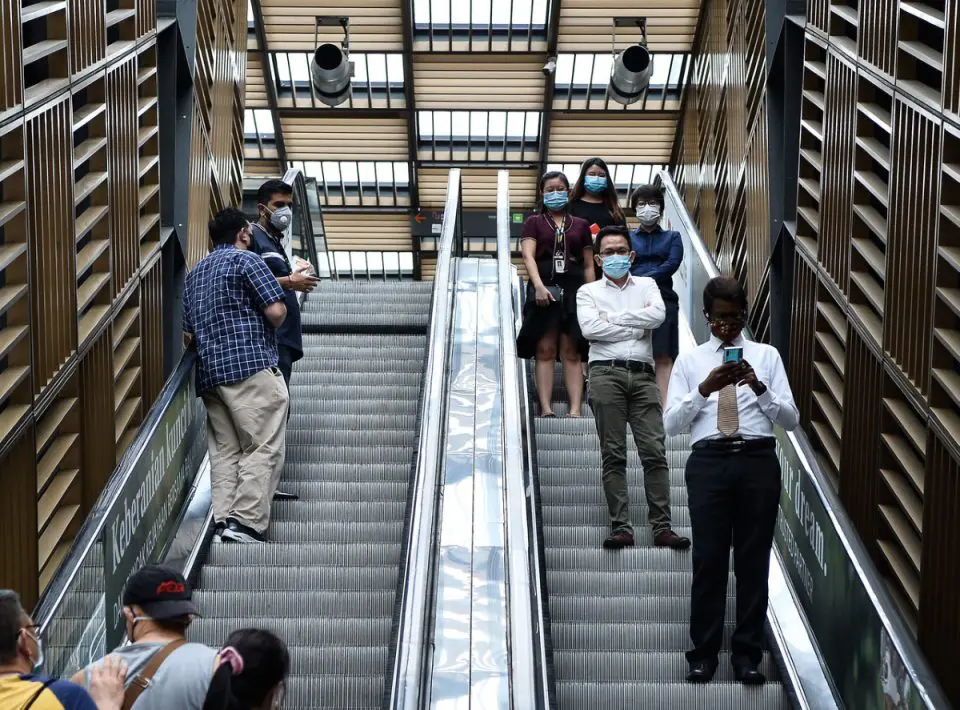KUALA LUMPUR, Feb 17 — Malaysia’s labour productivity continued to decline at negative 2.9 per cent in fourth quarter (Q4) 2020 after registering negative 2.2 per cent in Q3 2020, due to the impact of the conditional movement control order (CMCO), according to the Department of Statistics Malaysia (DoSM).
Chief statistician Datuk Seri Dr Mohd Uzir Mahidin said the total hours worked in Q4 2020 declined 2.7 per cent in line with the shorter business operation hours following the CMCO, recording a total of 8.6 billion hours.
“This had resulted to the labour productivity as measured by value added per hour worked dropping slightly by 0.8 per cent at RM42 per hour after increasing marginally by 0.1 per cent at RM41 per hour in Q3 2020,” he said in a statement in conjunction with the release of Q4 2020 Labour Productivity report today.
He highlighted that the pandemic had forced businesses to re-examine their existing business operation models to explore new opportunities through digitalisation.
“With the adoption of technology, it will improve efficiency in production and subsequently escalate the productivity in the medium and long-term,” he said.
Mohd Uzir said labour productivity remained in the declining trend for the fourth consecutive quarter to record value added per employment of RM23,570 per person (Q3 2020:RM23,257 per person).
He said the number of employment during the quarter, reduced 0.6 per cent (Q3 2020: -0.4 per cent) to 15.2 million persons while gross domestic product (GDP) for Q4 2020 contracted 3.4 per cent (Q3 2020: -2.6 per cent).
“Total hours worked in Q4 2020 declined 2.7 per cent (Q3 2020:-2.7 per cent) in line with the shorter business operation hours following the CMCO, recording a total hours worked of 8.6 billion hours.
“This had resulted in the labour productivity as measured by value added per hour worked dropping slightly by 0.8 per cent at RM42 per hour after increasing marginally by 0.1 per cent at RM41 per hour in Q3 2020,” he added.
DoSM said the manufacturing sector was the only sector that posted a positive growth of 3.2 per cent in Q4 (Q3 2020: 3.7 per cent) for labour productivity by value added per employment.
“Almost all economic sectors registered a decrease in labour productivity by value added per hour worked in this quarter, except for manufacturing which continued to post an increase of 6.0 per cent (Q3 2020: 7.0 per cent),” it said.
According to Mohd Uzir, labour productivity measured as value added per employment for 2020 dropped 5.4 per cent as compared to 2.1 per cent in 2019 as a consequence of the health crisis and the various phases of containment measures imposed throughout the whole year.
On the contrary, he said, labour productivity by value added per hour worked went up by 3.4 per cent in 2020 compared to 2.2 per cent in 2019 with a value of RM42 per hour (2019: RM41 per hour).
“Total hours worked for the year 2020 amounted to 32.0 billion hours (2019: 35.0 billion hours), reduced 8.7 per cent (2019: 2.1 per cent).
“During the year, economic performance indicated by value added, declined sharply 5.6 per cent (2019: 4.3 per cent) while employment decreased 0.2 per cent (2019: 2.1 per cent),” he added.
— Bernama





